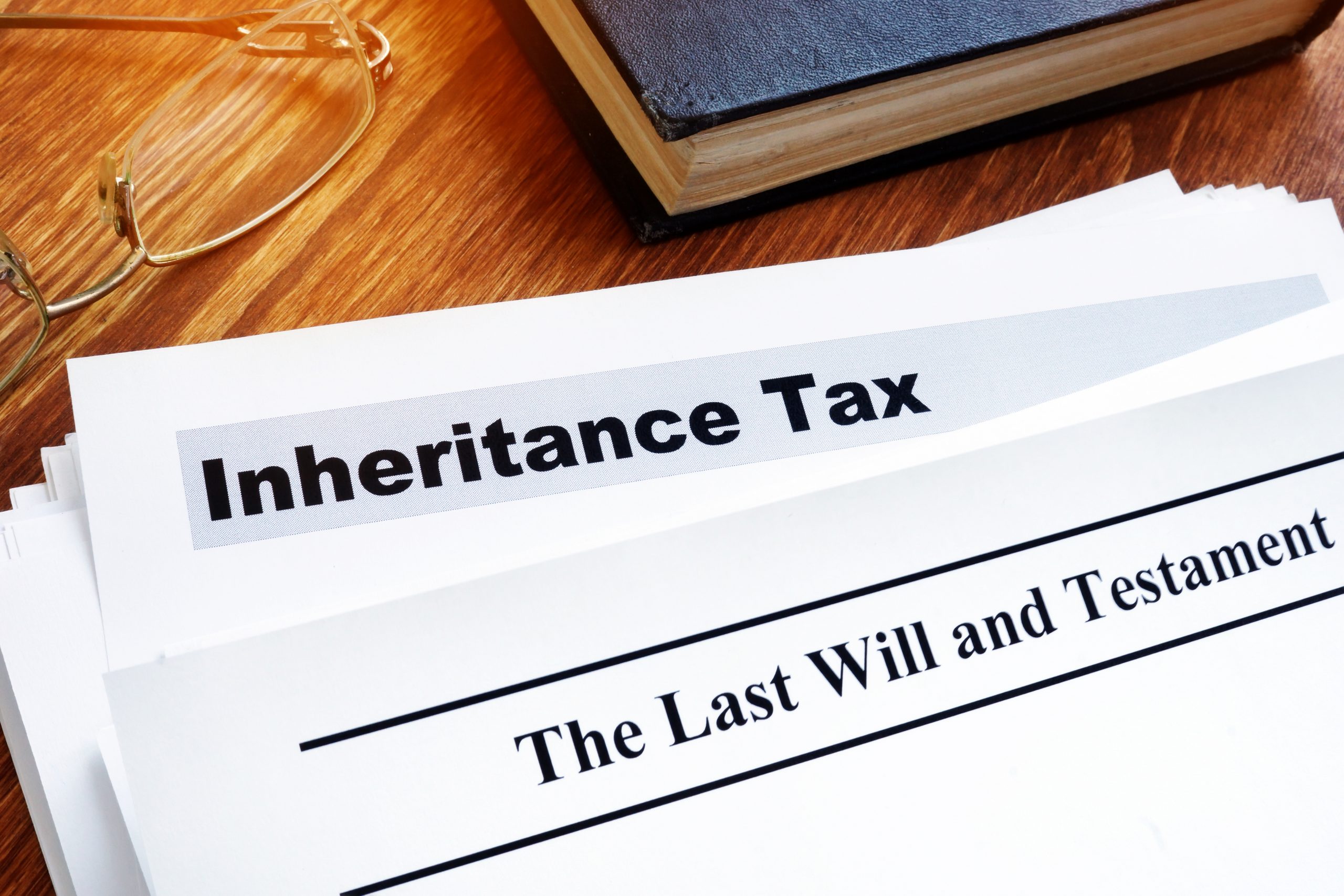
UK Inheritance Tax - Scope and Context
Inheritance Tax
Inheritance Tax (IHT) is a tax levied on lifetime gifts and on a deceased’s estate on death. Although most people understand that IHT applies on death, many do not understand that IHT may be charged on lifetime gifts which do not meet prescribed exemptions. We will cover many of the exemptions over the coming fortnight.
Certain gifts (transfers of value from a donor to a donee) are exempt from IHT at the point of giving, some are potentially exempt and some are immediately chargeable to IHT. In terms of lifetime giving, the nature of the gift and the nature of the asset being gifted generally dictates the IHT position of the gift. On death, the domicile of the individual and location of their assets will affect their liability to IHT.
Potentially exempt transfers
An outright gift from one individual to another is a potentially exempt transfer (PET). It is exempt from IHT during the individual’s lifetime and if the individual survives at least 7 years it is fully exempt. However if the donor dies within 7 years of making the PET, the gift becomes chargeable and unless agreements have been made to the contrary, any tax arising will be payable by the donee.

The rate of IHT on a failed PET is the rate of IHT on a transfer at death, currently 40%.
If the donor dies between 3 and 7 years after making a gift and the total value of gifts that they made is in excess of any reliefs available then the IHT due on the gift is reduced on a sliding scale, known as Taper Relief.
Chargeable lifetime transfers
The most common chargeable lifetime transfer (CLT) is the gift of assets into a relevant property trust (e.g. a discretionary trust). Subject to any reliefs available a CLT is chargeable to IHT after aggregating any other CLTs in the previous 7 years. Even if a particular CLT is covered by reliefs it could still impact on other chargeable transfers made within 7 years after the original gift. Generally HMRC must be notified of the CLT within a year of the end of the month in which the transfer was made.
The rate of IHT on a CLT is one half of the rate of IHT on a transfer at death, so currently this is 20% (1/2 x 40%).

Transfer on death
IHT is due on the chargeable estate of someone who has died domiciled in the UK (see below for more details on the effect of domicile), including all property, possessions and money, less any allowable debts or liabilities owed by the deceased at the date of their death. There are also circumstances where a UK liability to IHT arises in respect of UK situs assets (or formerly UK situs assets) for those domiciled outside the UK.
The deceased's appointed executors, or administrators, will need to complete and send in an account of the estate to HMRC within a year of the end of the month of the death. The account should also include details of any CLTs or failed PETs made by the deceased in the 7 years prior to death.
As noted above the rate tax on death is currently 40%, and any IHT must be paid by the end of the sixth month after the person’s death. However the executors can choose to pay the tax on certain assets, such as property, by instalments over ten years, but the outstanding amount of tax may be subject to interest.

Domicile and Inheritance Tax (IHT)
Domicile is a concept of common law and refers to the place where an individual maintains a permanent home and intends to remain indefinitely. It is possible for an individual to change their domicile, however an individual can only have one domicile at any given time.
Domicile is often confused with residence. The two often come hand in hand, however they have very distinct definitions and are calculated in different ways. In general, residence is used to determine an individual’s UK income and capital gains tax position, whereas domicile is used to determine an individual’s UK inheritance tax (“IHT”) position.

There are three different types of domicile:
- Domicile of origin
At birth, an individual is automatically assigned the same domicile as one of their parents. Generally, if the parents are married, the child will acquire the father’s domicile, and if they are unmarried, the child will acquire the mother’s domicile. - Domicile of choice
At 16, an individual can legally acquire a new domicile. This is achieved if an individual permanently moves to another country and intends to remain there indefinitely. - Domicile of dependence
Until a child reaches 16, they will automatically follow the domicile of the person that they are legally dependent on.
Effect on charge to Inheritance Tax
In the UK, domicile is a key factor in assessing the individual's liability to UK Inheritance Tax.
UK Domiciled
If an individual is domiciled in the UK, they are potentially liable to IHT on worldwide transfers of assets, whether the transfers are made during life or death, and regardless of whether the assets were situated in the UK or not. IHT is charged at 40% on all chargeable assets, however there is a nil rate band for the first £325,000 of cumulative chargeable transfers, an exemption on assets that are transferred to UK domiciled surviving spouses, and many other reliefs as set out in the articles following across our IHT Awareness Fortnight.
Non-UK Domiciled
It is important to establish the location of assets is an individual outside of the UK. Non-UK domiciled individuals (non-doms) are generally only subject to IHT on the assets they own that are situated in the UK. Most non-UK assets that are held by UK non-doms are knows as 'excluded property', and transfers of excluded property will not be liable to IHT.
There are two circumstances in which an individual who is not domiciled in the UK may be treated as being UK domiciled:
- Where a non-dom spouce/civil partner makes an election to be domiciled in the UK
- Where an individual is deemed domiciled in the UK.

Non-domiciled spouses/civil partners
Non-domiciled spouses/civil partners can make an election to become UK domiciled for IHT purposes which will give them access to the spouse to spouse exemption on transfers. The election is irrevocable for as long as the elector remains UK resident, but it will automatically cease after 4 years of the elector being non-UK resident. Please note, the exemption applies only to IHT (not any other taxes)
Deemed Domiciled
If an individual is deemed domicile, they will be liable to IHT in the same way as someone who is UK domiciled. There are two ways an individual may be deemed domicile:
- Long-Term Residents
For IHT purposes, an individual is deemed domicile if they have been:
a. Resident in the UK for 15 of the 20 previous years before the relevant tax year (the year of the chargeable transfer), regardless of whether they are resident at the date of the transfer or not; and
b. Resident in the UK for at least 1 year out of the tax year under consideration and the 3 preceding tax years. - Formerly Domiciled Residents
For IHT purposes, an individual is deemed domicile if they were:
a. Born in the UK with a UK domicile or origin but have acquired a new domicile of choice; and
b. Resident in the UK for the tax year under consideration, and for at least 1 of the 2 previous tax years.
Domicile not only affects IHT but it also affects income tax and CGT. It is therefore extremely important to consider and understand your domicile status (as well as residency status) when it comes to tax planning to avoid any unnecessary charges.

Should you have any queries or questions in respect of the above, please reach out to your usual Arnold Hill & Co contact or call our mainline on 0207 306 9100.
The information in this article is believed to be factually correct at the time of writing and publication, but is not intended to constitute advice. No liability is accepted for any loss howsoever arising as a result of the contents of this article. Specific advice should be sought before entering into, or refraining from entering into any transaction.
